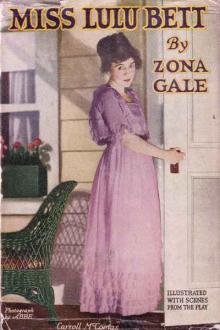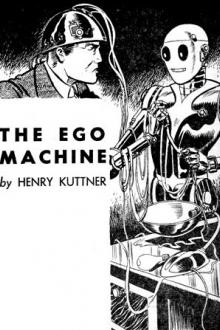Genre Fiction. Page - 214

contains so rich a collection of specimens of the genus homo. The success with which Lesage has introduced into Gil Blas virtually every form of human character, all sorts and conditions of men, is one of the miracles of literary art. The purely traditional picaro types, the vagabond and the beggar, the unscrupulous highwayman and the cut-throat, have, after all, comparatively small importance in the great comedy of life which Lesage depicts. These picaro types move in and out of the vast throng peopling his pages much as their counterparts in the flesh, the Apaches of the Marais quarter, jostled on the Pont Neuf the honest workman, the country bumpkin, the banker Turcaret, the bourgeois merchant, the strutting soldier, the barefoot monk, the daintily stepping petits maîtres, the authors and the actors, the ministers and the high officials, the servants and the adventurers, the priests, and the précieuses peering from their vinaigrettes. From the brigand cave that sheltered the jail-bird to the d

want a word again, gentlemen - what do you call that which they give to people when it's found out, at last, that they've never been of any use, and have been paid too much for doing nothing?'
'Compensation?' suggested the vice.
'That's it,' said the chairman. 'Compensation. They didn't give it him, though, and then he got very fond of his country all at once, and went about saying that gas was a death-blow to his native land, and that it was a plot of the radicals to ruin the country and destroy the oil and cotton trade for ever, and that the whales would go and kill themselves privately, out of sheer spite and vexation at not being caught. At last he got right-down cracked; called his tobacco-pipe a gas-pipe; thought his tears were lamp- oil; and went on with all manner of nonsense of that sort, till one night he hung himself on a lamp-iron in Saint Martin's Lane, and there was an end of HIM.
'Tom loved him, gentlemen, but he survived it. He shed a tear over his grave, got very drunk,

eacon heartily.
Bobby wavered toward the door, emerged on the porch, and ran almost uponDi returning from her tea-party at Jenny Plow's.
"Oh, Bobby! You came to see me?"
She was as fluffy, as curly, as smiling as her picture. She was carryingpink, gauzy favours and a spear of flowers. Undeniably in her voicethere was pleasure. Her glance was startled but already complacent. Shepaused on the steps, a lovely figure.
But one would say that nothing but the truth dwelt in Bobby.
"Oh, hullo," said he. "No. I came to see your father."
He marched by her. His hair stuck up at the back. His coat was hunchedabout his shoulders. His insufficient nose, abundant, loose-lipped mouthand brown eyes were completely expressionless. He marched by her withouta glance.
She flushed with vexation. Mr. Deacon, as one would expect, laughedloudly, took the situation in his elephantine grasp and pawed at it.
"Mamma! Mamma! What do you s'pose? Di thought she had a beau----"
"Oh, papa!" said Di. "Why, I

that Christmas morning, the road which skirts the seashore from St. Peter's Port to the Vale was clothed in white. From midnight till the break of day the snow had been falling. Towards nine o'clock, a little after the rising of the wintry sun, as it was too early yet for the Church of England folks to go to St. Sampson's, or for the Wesleyans to repair to Eldad Chapel, the road was almost deserted. Throughout that portion of the highway which separates the first from the second tower, only three foot-passengers could be seen. These were a child, a man, and a woman. Walking at a distance from each other, these wayfarers had no visible connection. The child, a boy of about eight years old, had stopped, and was looking curiously at the wintry scene. The man walked behind the woman, at a distance of about a hundred paces. Like her he was coming from the direction of the church of St. Sampson. The appearance of the man, who was still young, was something between that of a workman and a sailor. He wore his workin

e at the desk-lamp. "F(t)--I mean, if you counted the kappa waves of my radio-atomic brain now, you'd be amazed how the frequency's increased." He paused thoughtfully. "F(t)," he added.
Moving quite slowly, like a man under water, Martin lifted his glass and drank whiskey. Then, cautiously, he looked up at the robot again.
"F(t)--" he said, paused, shuddered, and drank again. That did it. "I'm drunk," he said with an air of shaken relief. "That must be it. I was almost beginning to believe--"
"Oh, nobody believes I'm a robot at first," the robot said. "You'll notice I showed up in a movie lot, where I wouldn't arouse suspicion. I'll appear to Ivan Vasilovich in an alchemist's lab, and he'll jump to the conclusive I'm an automaton. Which, of course, I am. Then there's a Uighur on my list--I'll appear to him in a shaman's hut and he'll assume I'm a devil. A matter of ecologicologic."
"Then you're a devil?" Martin inquired, seizing on the only plaus

Radnor frowned slightly.
"He doesn't forgive," he returned.
"What was the trouble with Jeff?" I ventured. "I have never heard any particulars."
"He and my father didn't agree. I don't remember very much about it myself; I was only thirteen when it happened. But I know there was the devil of a row."
"Do you know where he is?" I asked.
Radnor shook his head.
"I sent him some money once or twice, but my father found it out and shut down on my bank account. I've lost track of him lately--he isn't in need of money though. The last I heard he was running a gambling place in Seattle."
"It's a great pity!" I sighed. "He was a fine chap when I knew him."
Radnor echoed my sigh but he did not choose to follow up the subject, and we passed the rest of the way in silence until we turned into the lane that led to Four-Pools. After the manner of many Southern places the house was situated well toward the middle of the large plantation, and entirely out of sight from

seen him since he left home. I was a child of seven then."
The Texan looked down at the ruffian under his feet.
"Do you know the road to Mexico by the Arivaca cut-off?"
"Yes."
"Then climb into my rig and hit the trail hard-- burn it up till you've crossed the line."
The fellow began to whine thanks, but the man above would have none of them, "I'm giving you this chance for your sister's sake. You won't make anything of it. You're born for meanness and deviltry. I know your kind from El Paso to Dawson. But she's game and she's white clear through, even if she is your sister and a plumb little fool. Can you walk to the road?" he ended abruptly.
"I think so. It's in my ankle. Some hell-hound gave it me while we were getting over the wall," the fellow growled.
"Don't blame him. His intentions were good. He meant to blow out your brains."
The convict cursed vilely, but in the midst of his impotent rage the other stopped and dragged him to his feet.
"Th

ere Tom Wolfe to have written it as a non-fiction title. That it was inspired by actual characters and events, and turned by Wolfe's expert hands into a compelling modern-day tale of murder and mortality, were enough to convince me that I could pull off the same sort of magic with my own "what if" scenario, swapping Silicon Valley for New York, and the personal computer business for bond trading.
That this was my first attempt at writing a novel goes a long way toward explaining the earliest rejections of the work, then titled "Silicon Dreams," by editors unlucky enough to have had it land with a thud on their desks. Somehow I'd lost sight of Mr. Wolfe's excellent illustration and found myself mimicking, all at once, the likes of Sidney Sheldon, Arthur Hailey, Jackie Collins, and, believe it or not, Stephen King (who happens to be my favorite mainstream read). With so many influences at play in the already befuddled head of an aspiring young writer with dreams of hitting the number one spot on all of t

ere mounted sculls and oars, footballs and baseballs. The long and proud record of the university was there to be read. All her famous athletes were pictured there, and every one who had fought for his college. Ken realized that here for the first time he was in the atmosphere of college spirit for which the university was famed. What would he not have given for a permanent place in that gallery! But it was too late. He had humiliated the captain of the baseball team. Ken sought out the picture of the last season's varsity. What a stocky lot of young chaps, all consciously proud of the big letter on their shirts! Dale, the captain and pitcher, was in the centre of the group. Ken knew his record, and it was a splendid one. Ken took another look at Dale, another at the famous trainer, Murray, and the professional coach, Arthurs--men under whom it had been his dream to play--and then he left the room, broken-hearted.
When the Christmas recess was over he went back to his lectures resigned to the thought t

have mentioned. One of these was, the prospect of his succeedingto an old lady, a distant relation, who was known to be possessed ofa very large sum in the stocks: but in this their hopes weredisappointed; for the young man was so untoward in his disposition,that, notwithstanding the instructions he daily received, his visitsrather tended to alienate than gain the good-will of his kinswoman.He sometimes looked grave when the old lady told the jokes of heryouth; he often refused to eat when she pressed him, and was seldomor never provided with sugar-candy or liquorice when she was seizedwith a fit of coughing: nay, he had once the rudeness to fallasleep while she was describing the composition and virtues of herfavourite cholic-water. In short, be accommodated himself so ill toher humour, that she died, and did not leave him a farthing.
The other method pointed out to him was an endeavour to get a leaseof some crown-lands, which lay contiguous to his little paternalestate. This, it was im